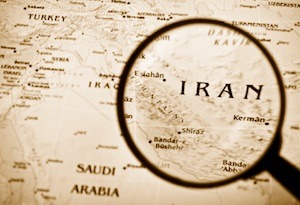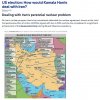Stucky
Superstar
- Joined
- May 17, 2020
- Messages
- 5,946

RAF spy flights over Gaza risk complicity in Israeli torture
Britain’s military could be receiving intelligence from Israel that was obtained under torture, campaigners fear.





 www.mintpressnews.com
www.mintpressnews.com




2002
The Men From JINSA and CSP
They want not just a US invasion of Iraq but "total war" against Arab regimes.www.thenation.com
I can't believe i even read this but it's a good reason to take conscription-related news seriously. 2025 is a big year and that's when many countries are activating their programs.Given these developments, i decided to check news reports to see if there's anything about AUMF. Strangely, no major American publication has reported on Lindsey Graham's bill....Jewish Insider ran this story like 10hrs ago....and i've used multiple search engines but nothing from Wapo, NYT, USAToday, etc. Ofcourse, something like this is very controversial given the previous AUMF acts of 2001/2 and i don't see how congress would even pass another act unless there is a major terror attack on CONUS and this is why they need a draft because there aren't millions of Pat Tillmans waiting to be swept up in patriotic fervor and voluntarily sign up for another Mid-East war or deployed to another theater.

Graham introduces war powers bill to strike Iran’s nuclear program
The South Carolina senator unveiled the resolution just ahead of the Senate’s August recess, with plans to attempt to force Senate floor consideration when lawmakers return in Septemberjewishinsider.com
Sen. Lindsey Graham (R-SC) introduced a war powers resolution on Wednesday aimed at pushing the U.S. to take action to curb Iran’s expanding nuclear program.
Graham said that the Authorization for Use of Military Force would “be triggered if the president determines that Iran possesses uranium [that is] enriched to the weapons-grade level, a nuclear warhead or were to possess a delivery vehicle capable of delivering a nuclear device against Israel or other allies or the United States.”
He unveiled the resolution just ahead of the Senate’s August recess, with plans to attempt to force Senate floor consideration when lawmakers return in September.
“I just read the director of national intelligence report regarding the status of the Iran nuclear program, and I would urge every member of the House and the Senate to read it,” Graham said during a press conference at the Capitol.
“Iran will keep going until somebody tells them to stop. It’s time to put red lines on their nuclear program and enforce them. The idea of ambiguity is not working. As we talk about their program, their program gets larger and more lethal. After viewing the ODNI report, I believe that if we do not change course, Iran will possess a nuclear weapon very soon,” he continued.
Asked if he thought a conflict with Iran or Hezbollah would require U.S. boots on the ground, Graham replied, “No, not from us.”
The South Carolina senator also introduced a resolution stating that “any escalation by Hezbollah against Israel that leads to a major confrontation should be viewed as an attack carried out and executed by Iran,” referring to the Israeli strike that targeted Fuad Shukr, Hezbollah’s senior commander, in southern Beirut earlier this week. He said he plans to try and force floor consideration of this resolution in September as well.
“I am going to ask the body to take up this resolution in September and see where the Senate is on the idea that Iran and Hezbollah are the same. Without Iran, Hezbollah has no money, they have no technology, no weapons to wage war against Israel,” Graham said.
“It is time to end the charade that the world is playing when it comes to Hamas, Hezbollah and Iran. They are one and the same. We held the Soviet Union liable for any attack coming from Cuba because Cuba was a proxy of the Soviet Union. That same doctrine should apply to Iran,” he added. “Not only should Israel hold Iran accountable for any escalation by Hezbollah, the United States should do the same.”
Graham developed the resolutions as part of his broader effort to crack down on Tehran’s nuclear program and continued backing of Hamas, Hezbollah and other terror groups that target the U.S. and Israel.
He introduced legislation last week that would impose tariffs on countries that buy crude oil or petroleum products from Iran which, if implemented, would serve as an obstacle to Tehran being able to export their petroleum to countries that engage with the United States.
Iran uses its oil profits to fund terrorism and its expanding nuclear program. Earlier this month, Secretary of State Tony Blinken revealed that Iran had narrowed its nuclear breakout time — how long it would take to produce enough weapons-grade uranium to produce a nuclear bomb — to approximately one to two weeks.
Sen. Ben Cardin (D-MD), the chairman of the Senate Foreign Relations Committee, was not supportive of Graham’s proposal.
“I would be very cautious about an AUMF,” he told Jewish Insider on Wednesday during a meeting with journalists, pointing to the other long-standing AUMFs from 2001 and 2002, which he said have been overused by administrations well beyond their intended purposes. “Any AUMF, for me to support it, it’s going to have to be very limited in time and very specific as to the authorities that are needed.”
He added that AUMFs generally come in response to requests from the administration: “I’ve never seen Congress give authority the president does not want.”
He said that the U.S. “cannot tolerate” Iran having a nuclear weapon, but noted that the current intelligence assessment is that Iran has not decided to build one.
“If that is changing, that changes our strategies and then we have to consider other options,” Cardin said.
Cardin also noted that there are additional steps, beyond nuclear breakout, for Iran to actually produce a nuclear weapon, which would take longer than two weeks.






 www.commondreams.org
www.commondreams.org
